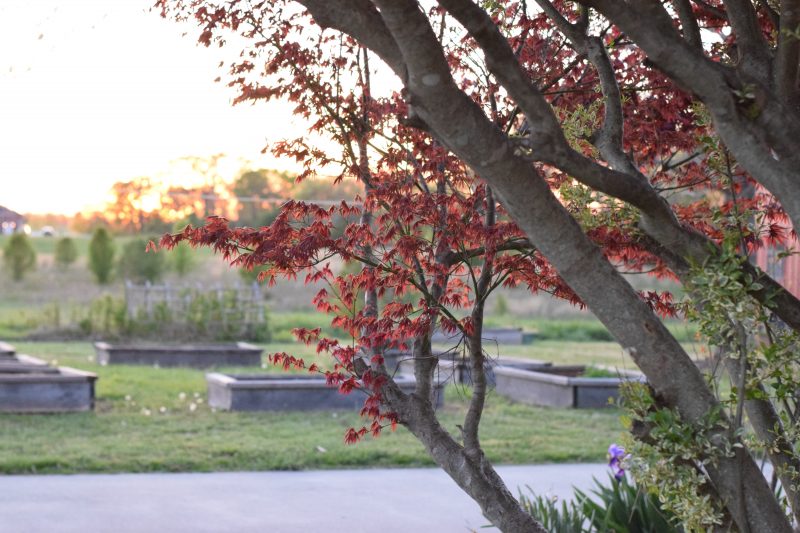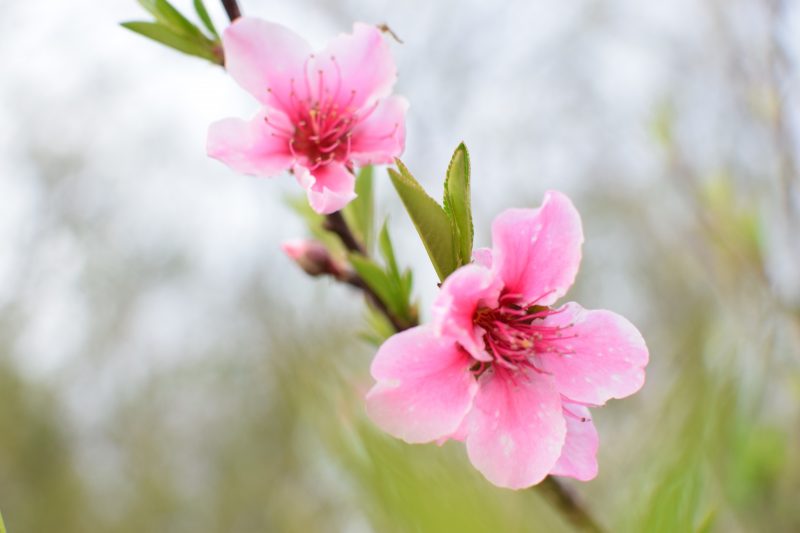The Call Within the Call – Lessons from Mother Teresa on Homeschooling
With the upcoming canonization of Blessed Mother Teresa on September 4, 2016, I wanted to share a bit about how this Saint has provided influence in my own life. This article was originally published in 2009 in mater et magistra magazine. It is republished here with slight editing to update.
The vocation of home education is beautiful, but like all beauty, it is shrouded in mystery and requires a good deal of faith to live out. Stepping out in faith is always easier when others have gone before us and can give us an idea of what is coming. I cherish the wisdom of those that have gone before in this vocation, yet because home education is so unique for each family I also find that I rely heavily on the wisdom of the saints. Their path and goal, so focused on living a life of heroic virtue, illuminates my path. I couldn’t hope to list all the saints who have been particular friends of mine along this journey, but there is one of late who has been nurturing my calling: Blessed Mother Teresa.
Blessed Mother Teresa of Calcutta is inspiring to me, perhaps because her words speak directly to this vocation of mine: the vocation to married life, and as part of that vocation, the responsibility and duty of educating my children. She offers, with tremendous brevity, insightful and inspiring words that set my feet in motion and move my heart and actions toward joyful service—and Our Lord.
In reading about Mother Teresa, it is difficult to miss a particular watershed moment in her life. She speaks very clearly of the early days of her vocation. At that time she was simply, Sister Teresa, a Sister of Our Lady of Loreto. Having already discerned a vocation to the religious life, and living out her vows, in prayer one night she heard, “a call within a call” that was to propel her to leave the convent of Loreto and consecrate herself to help the poor and live among them. She describes this moment saying she was, “aware of a calling in the midst of my vocation.” (Mother Teresa, In My Own Words, p. ix)
It was this thought, the thought of a “call within a call . . . in the midst of (a) vocation” that fed my imagination: I began to see parallels between Mother Teresa’s calling to the poor and my calling to educate my children at home. I want to share with you some of Blessed Mother Teresa’s thoughts, and explain how I see the call within a call as being relevant and applicable to the vocation of home educator.
I have been home educating for almost 15 years (updated). Perhaps this timing—being well into my vocation, but having a long way to go—is one of the reasons the ideas I am about to share have such meaning for me. I’m aware now that there are many calls wrapped in the midst of my vocation, sheltered within the commitment to nurture my children’s education at home.
Some may believe that the call to the vocation of home education is the end of a journey—that once we’ve discerned this decision, we’re just coasting, right? Wrong! There are many calls within this call, and each of them has been placed in our hearts by the Divine Author to develop and refine us in this vocation—to draw us toward holiness. A vocation, by definition, is “a call from God to a distinctive state of life, in which the person can reach holiness.” (Pocket Catholic Dictionary, Father John Hardon, S.J.) Discerning the vocation to home educate is a first step, but like Blessed Mother Teresa, we continue on in prayer and good works as we journey toward holiness.
“Holiness is not the luxury of a few. It is everyone’s duty: yours and mine.”
Mother Teresa, In My Own Words, p.3
I have encountered many ideas that challenge the vocation to home education. I think there is a possibility to misinterpret these challenges as a call to abandon the vocation entirely. I don’t want to diminish in any way the seriousness or sincerity of anyone who may discern that move, but I’d like to suggest that most of these calls prompt and invite action within the call—to dig deeper, to pursue virtue, to stretch toward holiness—rather than challenge the vocation itself.
A Call to Recognize Beauty and Embrace Contentment
“Holiness does not consist in doing extraordinary things. It consists in accepting, with a smile, what Jesus sends us. It consists in accepting and following the will of God.”
Mother Teresa, In My Own Words, p. 1
I have much to learn, but at this point, I feel comfortable in my role of mother and educator. I recognize the importance of keeping my eyes focused on my home and my own children. I know I am an expert at raising the children God gave me, and that’s it. I enjoy looking to fellow home-educating moms for inspiration. I see the value in being able to recognize someone else’s gifts and say, “How beautiful! Can I make that work in my home with my children?” There are also times I can observe something beautiful and say, “That is lovely. What they are able to do is beautiful! God didn’t give me those gifts, and He isn’t asking this of me right now. Thanks be to God that He gave those gifts to this family.” And I move on in peace and joy. Too often, when we see something beautiful, something worthy offered by another, we feel the temptation of thinking that we are “less-than,” of unworthiness. We just need to remind ourselves that our gifts may lie elsewhere! That “perfect mom” has mountains of laundry and an Elmer’s glue portrait in her hallway, too!
Contentment is so very important for the home-educating mom. I know this because I know the days when you feel torn between teaching that math lesson and tackling that mountain of unfolded laundry on the couch, as you reflect on your disheveled hair, hardly feeling human anymore. These are the days when it’s so easy for discontent to creep in. But in reality, if we could gently move the veil aside that separates our daily offerings from the supernatural, we would see that our day, so full of seemingly mundane tasks, has tremendous eternal value. Each chaotic moment yields supernatural gold.
Contentment in home education brings peace and great joy. It opens the door to learning in a way that no learning manipulatives ever could.
Contentment doesn’t imply resting on one’s laurels, but rather distinguishes itself by an ability to rejoice in all because of the interior recognition that all good is a gift of, and at the service of God, who is all good and deserving of all our love.
Contentment has the unique ability to recognize the beauty and good in an idea or opportunity and still be able to say, “no thank-you.” It doesn’t seek to strip the good from something when that something isn’t in God’s plan for the family right now. It can simply see that the good is for someone else—and then move on.
Of course our contentment may be challenged from time to time by an awareness of our smallness in comparison to the generosity of a great gift offered to another. But smallness itself is also a great gift. Recall another saint, St. Therese, the Little Flower. In her smallness she teaches with clarity and Holy Mother Church calls her a Doctor of the Church. Her message: Stay small. Of the Little Flower, Blessed Mother Teresa says:
“It is like Jesus said in the Gospel to the one who was seated in the lowest place,
‘Friend, come up higher.’
So let us keep very small and follow the Little Flower’s way of trust and love and joy, and we will fulfill
Mother’s promise to give saints to Mother Church.”
My Dear Children – Mother Teresa’s Last Message, p. 61
A Call to Discern the Needs of Each Individual Child
“Prayer begets faith, faith begets love, and love begets service…”
Mother Teresa, In My Own Words, p. 7
Attaining holiness in this vocation necessitates change—forward momentum. Forward momentum is fueled by prayer. Discernment through prayer in home education means that we are always observing, always seeking to know the truth with regard to our children’s education, our expectations, their understanding. We watch our children, observing their needs, their strengths, their weaknesses and challenges, their temperaments. These are tools that assist us in answering our call effectively.
Sometimes, in prayer, we are prompted to make a radical shift in how we homeschool or the way we are approaching the needs of a particular child. In my own journey, I have been prompted to look to Maria Montessori’s methods more closely because of the needs of one of my children. Standard methods of communicating ideas were not working, in spite of the fact that these same methods worked fine for a previous child. If I had stopped discerning in this call, we would probably still be banging our heads against the same wall in frustration. But there came a call within a call that said that I was not meeting this child’s needs—and that I needed to search for a solution. It prompted change, growth, learning, stretching for me—all within the call.
Be open through prayer and observation to this call. Each child is unique, which means that sometimes unique and creative solutions will need to be discovered in order to address certain challenges. So when things aren’t working, ask yourself, Does my child need to bend? Or do I need to bend?
Of course, the answer to that question is not always abundantly obvious as I hope to illustrate in a moment.
A Call to a New Season of Homeschooling
“Love is the product of every season.”
Mother Teresa, In My Own Words, p. 38
Characterizing a season of homeschooling is difficult; some of them flow naturally from one to the next while some of them challenge us with difficulties and opportunities for growth in virtue. I can think of one instance in particular that I found myself pulling my hair out and feeling like I was a non-productive noodle when it hit me: I’m six months pregnant! I know, it shouldn’t have been a shock, but I guess I was just marching on, expecting to accomplish and live out my vocation in the same way I always had. Instead, I needed to accept the season, accept my own limitations, and embrace the lessons of eternal value that the children witness during these seasons: the beauty of new life and suffering, and the reality of mystery.
We will experience many different seasons during our home-educating vocation. There are those that require us to be even more faithful to our family routines and structure in order to provide a haven and sense of shelter and security. There are those that allow a little more latitude. And then, there are those seasons that necessitate a sincere curtailing of expectations along with implementation of a careful and thoughtful direction that allows for simple joys. Embracing each season requires stretching and consideration; prayer yields the answer.
There is beauty and mystery in all of the seasons God blesses us with, whether they yield breathtaking productivity, or a quiet appreciation of loss, love, and life. The call within a call often compels us to slow down, trust in His timing, His plan, and live the season with knees bent in trust.
A Call to a Change in Course
True love causes pain.
Jesus, in order to give us the proof of his love, died on the cross.
A mother, in order to give birth to her baby, has to suffer.
If you really love one another, you will not be able to avoid making sacrifices.
Mother Teresa, In My Own Words, p. 33
There are times when it becomes painfully clear that major changes are in order, and sacrifices of some kind must be made to accommodate these changes. Sometimes those changes necessitate a shift to a simpler, gentler day with expectations that are more focused on individual children’s abilities. And, sometimes, changes require stepping up and moving toward more routine and order. Either way, when a change of this type is called for within the vocation of home education, it is painful. Why? Change generally requires pruning of habits that have become common and easy.
One of the first times I heard this call to change, I found myself struggling so much I wondered if I was being prompted to give up the vocation of home education altogether. I was teaching my fourth grader at the time, my oldest child. We were moving along at a great clip when all of a sudden everything fell apart. My child’s behavior reflected deep inner unhappiness, and she revolted and railed against everything. I tried to be firmer in my discipline, but the results were merely more behavioral issues and greater dissatisfaction on her part. This, I’m sad to say, went on for months. It was to be my first intense lesson in how to observe my child’s needs, to search patiently for an answer, to pray without ceasing.
I took notes and began to journal, observing and noticing every detail—I knew I needed to make a connection somewhere. I can remember thinking that surely there was something simple that I needed to fix. I sat down and recounted my day to my husband every evening, and every evening he patiently directed as to how to go about the next day.
I needed graces like never before so I literally ran every week to confession, pouring out my weakness and sin in the confessional and finding myself subsequently flooded with grace and mercy. I moved forward, and over time a softening of my own spirit began to take place. In my own inexperience, I kept looking for some magic button to push when the answer was in front of me all the time. All I needed to do was relax, to listen, to quiet myself and my own fears, to trust, and I needed to let go of the idea that every box had to be checked. It was painful to realize that I had been pushing and pulling so hard that my daughter and I were stuck, but it was also liberating, and we changed. I relaxed, and the tension and angst diminished.
This particular call within a call to change brought unspeakable blessing to our family. I never expected that in this painful instance my own misguided expectations could bring about such disharmony and unhappiness. But I came to see that God’s grace was always there. He was leading me through the pain so that I could see the truth: I needed to bend my will to His. Answering the call, I trusted more and pushed less, and we found ourselves breathing again. Our time spent together became amazingly rich—and we shared treasured moments I couldn’t have anticipated.
These calls within a call in the vocation of home education sometimes come softly, sometimes they storm in on us, and sometimes it takes us time to recognize them at all. Each of them is an invitation to grow in holiness. I believe these calls are heard most clearly when, as Our Blessed Mother did, we ponder our days prayerfully in our hearts.














Your eloquently expressed thoughts could not have come at a more appropriate time; encouragement dearly needed. Thank you for so beautifully reminding me to persevere by leaning on God’s grace and direction, not on my own strength or understanding. It doesn’t matter how many times I learn this lesson; I always need to be reminded to let the joy of the Lord be my strength, especially in the routine, mundane details of daily life and in the temptation to compare.
I’m sure I speak for many when I say I appreciate your insights and inspirations so much!
Thank you for sharing this beautiful post! Trusting, listening and being open to God’s Will is something I am slowly learning during our journey of homeschooling. You sum this up beautifully in Blessed Mother Teresa’s words, “a call within a call”. God bless.
Oh my word. ….did you write this just for me? ?? This by far has been the most amazing and has spoken to me more than I knew I needed! !! Thank you so much for this beautiful inspiration!
Oh Jen….such a beautiful and encouraging post! Thank you!
I sincerely needed this. Thank you.
Beautiful. Thank you for sharing.
Thank you. I needed this.
Thank you for this very inspiring post, just what I needed to hear. I love your blog so much!
Hi Jen! It’s Corrie from OLHP. I couldn’t remember the name of your blog, but I accidentally found it just now when I was googling “morning baskets.”
This post was beautiful- and very well timed for me! We had our first official day of school yesterday and it was HORRIBLE. I started to panic, thinking I had made the wrong choice as far as homeschooling was concerned. I pulled the plug on the school day, sat down with my notebook, and brainstormed solutions to the million problems that had come up. Today was still crazy, but much better. This post reinforces many of the thoughts I was having and is confirmation for me that I am on the right track.
Also, thank you again for your talk! It left an impression on me and I am actively looking for art books to cut up 🙂
God bless you!
Hi Corrie!
Thanks so much for your kind words!! I know those days – with notebooks and brainstorming! Know them well!!! Sending prayers that your brainstorming yields some fruit you can work with for smoother days…or at least days that are workable, right? LOL! God bless! 🙂 And see you at church! 🙂
I’m Catholic too. St. Mother Teresa, Pray for Us! Beautiful post.
I love your blog! I just wanted to let you know that we featured you in a list of 100 best Homeschooling blogs. You can find our article at the following link:
http://healthymomsmagazine.net/2016/09/top-100-homeschooling-blogs.html
We would appreciate it if you shared this with your readers, followers and fans. Have a terrific weekend!